Have you ever paused while writing and wondered whether the correct spelling is “Noisey” or “Noisy”?
This small confusion affects many people — whether you’re a student, blogger, or working on a professional report. People often search for this keyword because they want their writing to be accurate, polished, and error-free.
Words like this can be tricky because both spellings look almost the same, but only one is correct. If you write content, send emails, or work on school assignments, knowing the right spelling is important.
This article will give you a clear, simple explanation so that next time you write, you can confidently choose between Noisy and Noisey without second-guessing.
Noisey or Noisy – Quick Answer
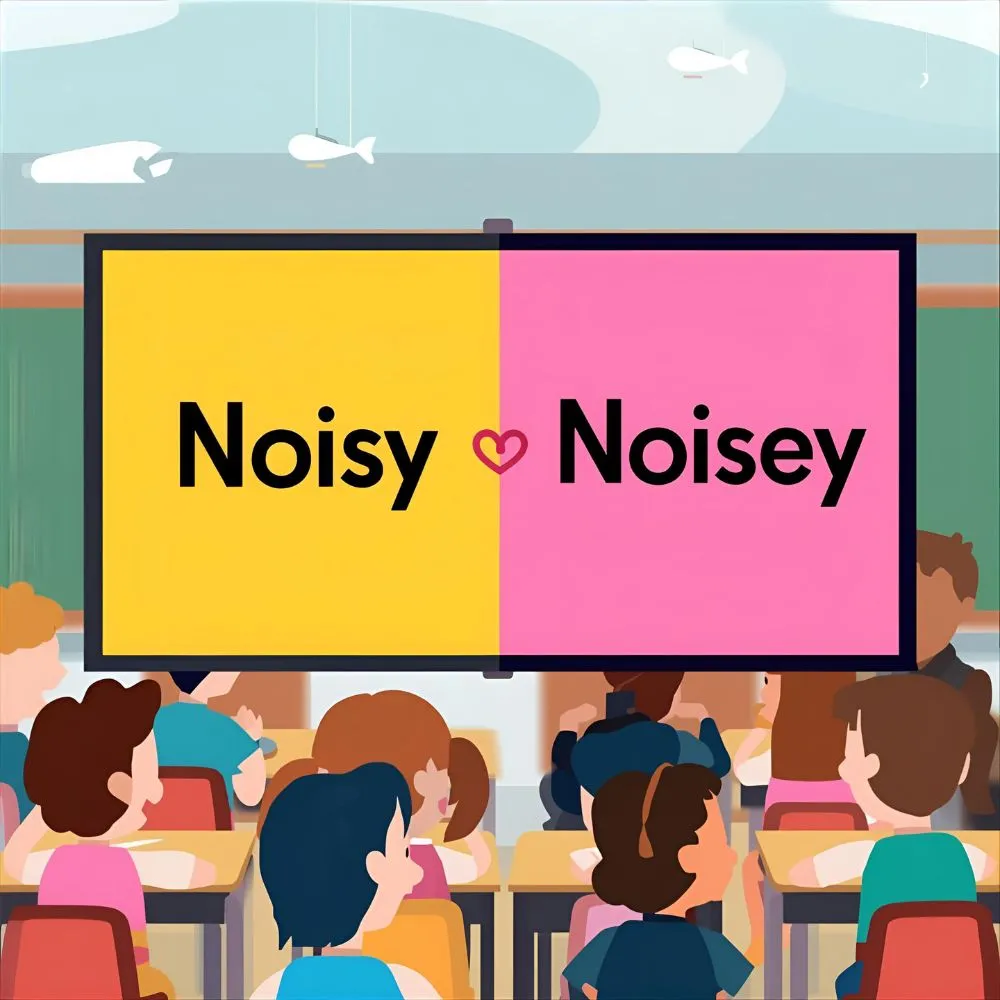
The correct spelling is “noisy.”
The word “noisey” is incorrect and not recognized in standard English dictionaries.
✅ Correct: The classroom was noisy during lunch break.
❌ Incorrect: The classroom was noisey during lunch break.
The adjective noisy means “making or full of noise.” It comes from the noun noise, with the suffix “-y” added — no extra “e” needed.
The Origin of “Noisey or Noisy”
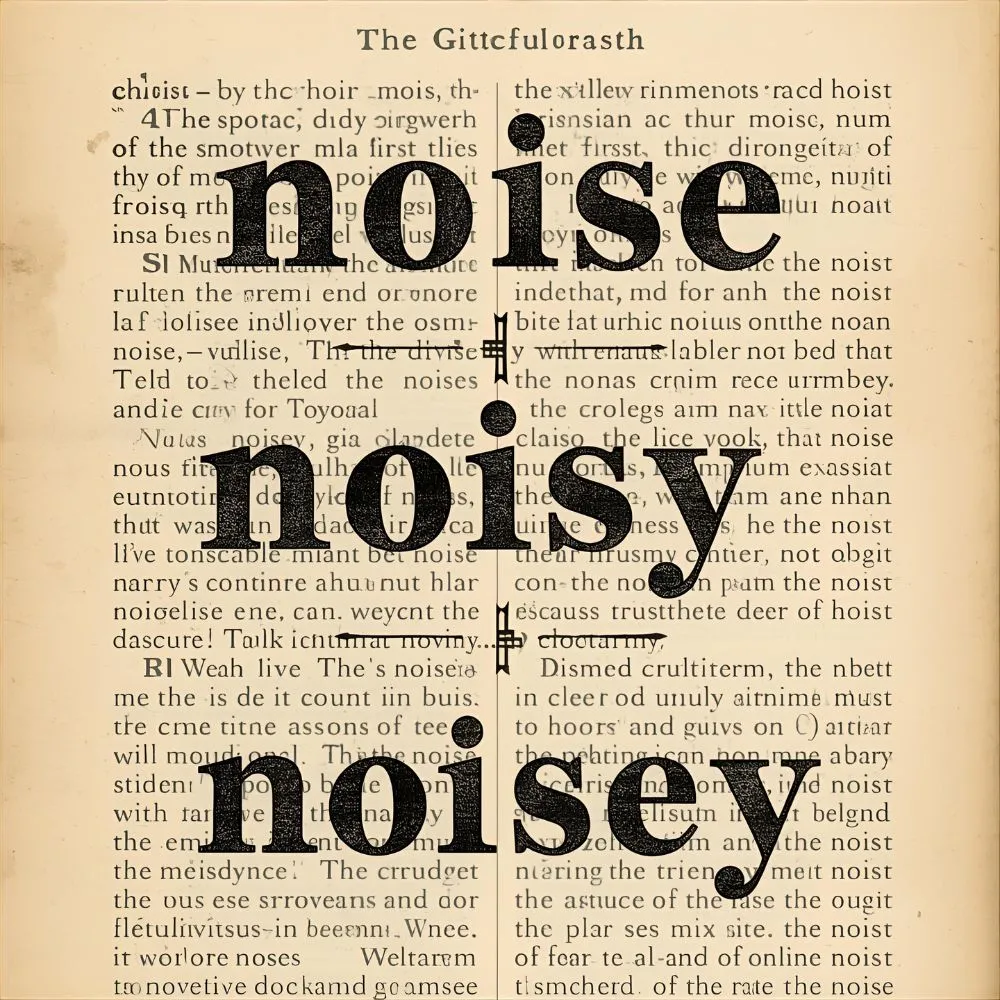
The word noisy originates from the Old French word noise, meaning “disturbance” or “quarrel.” English borrowed it around the 13th century, keeping the root but simplifying the spelling.
Over time, writers mistakenly added an “e” (as in noisey) because other English words like money → moneyed or honey → honeyed keep the “e” before adding endings. However, noisy doesn’t follow that rule — the correct form drops the extra “e.”
So, noisey became a common misspelling but never an accepted variation.
British English vs American English Spelling
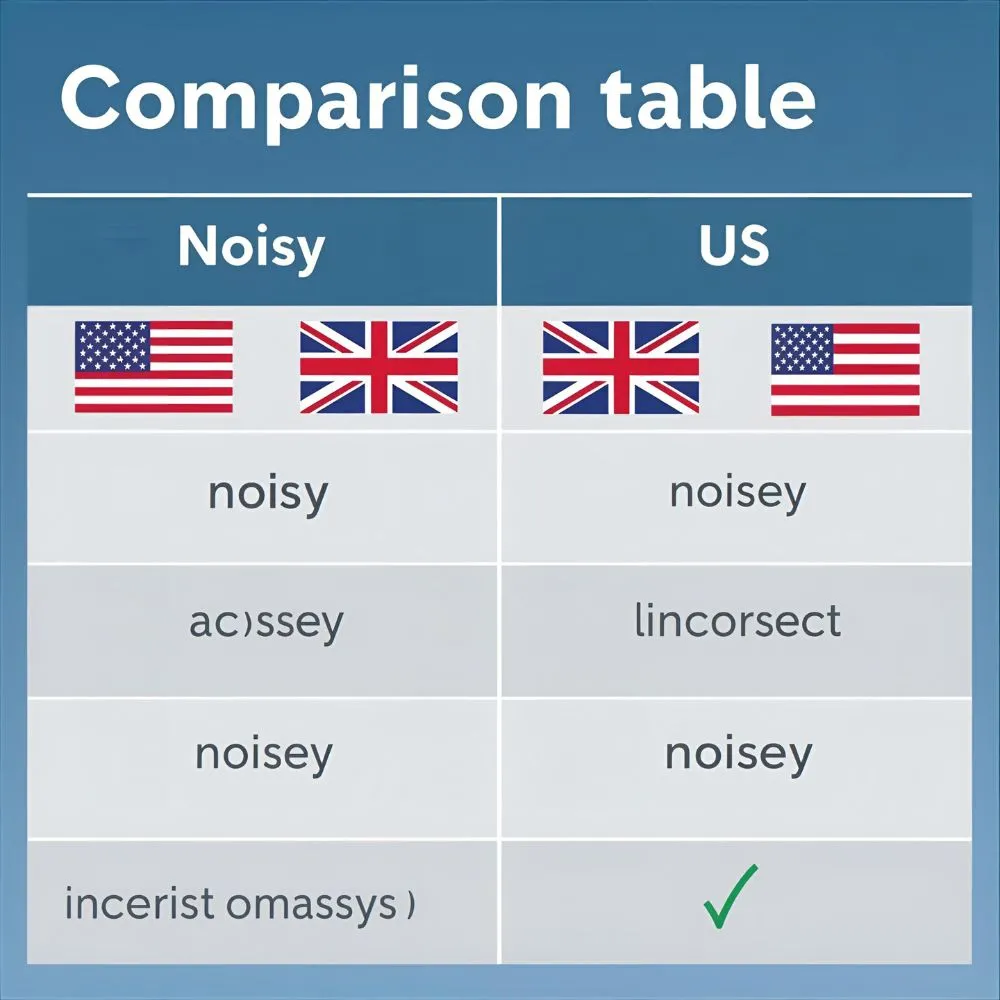
Unlike many other English words that differ between the UK and US (like colour vs color), both British and American English agree on the correct spelling — noisy.
| Region | Correct Spelling | Incorrect Variant | Example Sentence |
| American English | Noisy | Noisey | The city streets were noisy all night. |
| British English | Noisy | Noisey | It was too noisy for me to concentrate. |
| Australian English | Noisy | Noisey | The party next door was very noisy. |
So, no matter where you are, noisy is the right choice.
Which Spelling Should You Use?

You should always use “noisy.”
It’s universally accepted in all versions of English, including American, British, Canadian, and Australian. Using noisey may look unprofessional and can be flagged as an error by spell-checkers, editors, and grammar tools.
Tip to remember:
If a word ends with -se, simply add “-y” — just like noise → noisy, base → basic, or rise → rising.
Common Mistakes with “Noisey or Noisy”
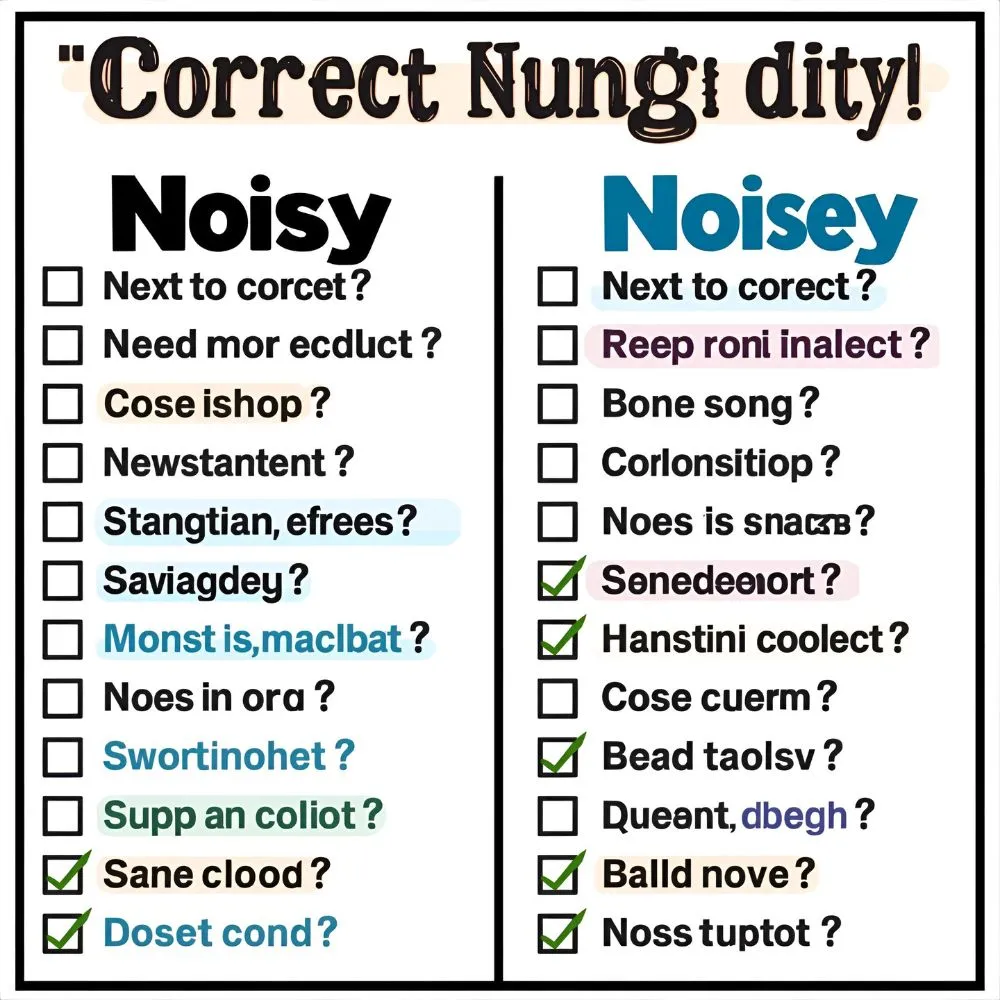
Here are some frequent errors and how to fix them:
| Incorrect | Correct | Why It’s Wrong |
| The crowd was noisey. | The crowd was noisy. | Extra “e” is unnecessary. |
| It’s a very noisey neighborhood. | It’s a very noisy neighborhood. | Noisey isn’t in the dictionary. |
| My kids are noisey after dinner. | My kids are noisy after dinner. | Incorrect spelling. |
Remember: “Noisy” follows the same rule as breezy, busy, or lazy — simple and sleek, no extra vowels.
Noisey or Noisy in Everyday Examples
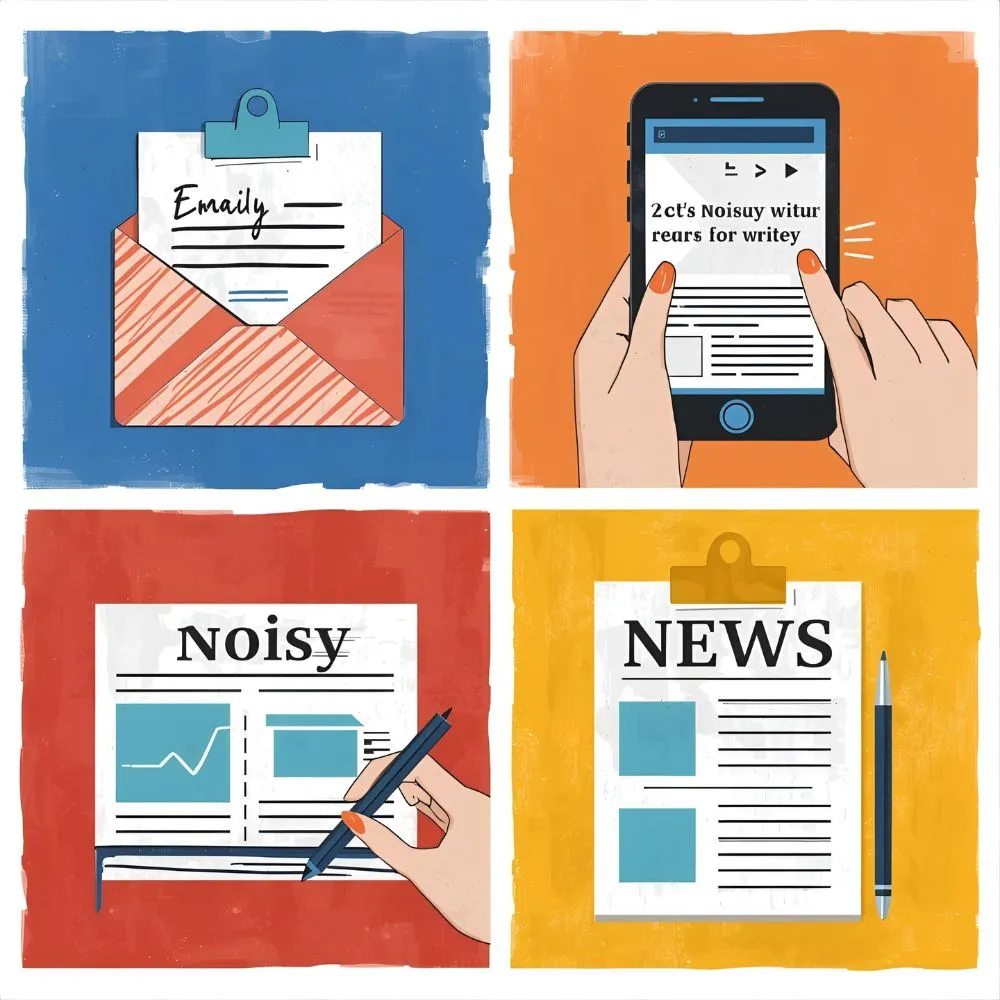
- Emails: “Sorry for the delay — it was too noisy in the office.”
- Social Media: “Can’t focus, my street’s too noisy tonight 😩.”
- News Headlines: “Noisy construction sparks complaints from residents.”
- Formal Writing: “The experiment was conducted in a noisy environment to test sound interference.”
Across platforms, noisy fits every tone — formal, casual, or professional.
Noisey or Noisy – Google Trends & Usage Data
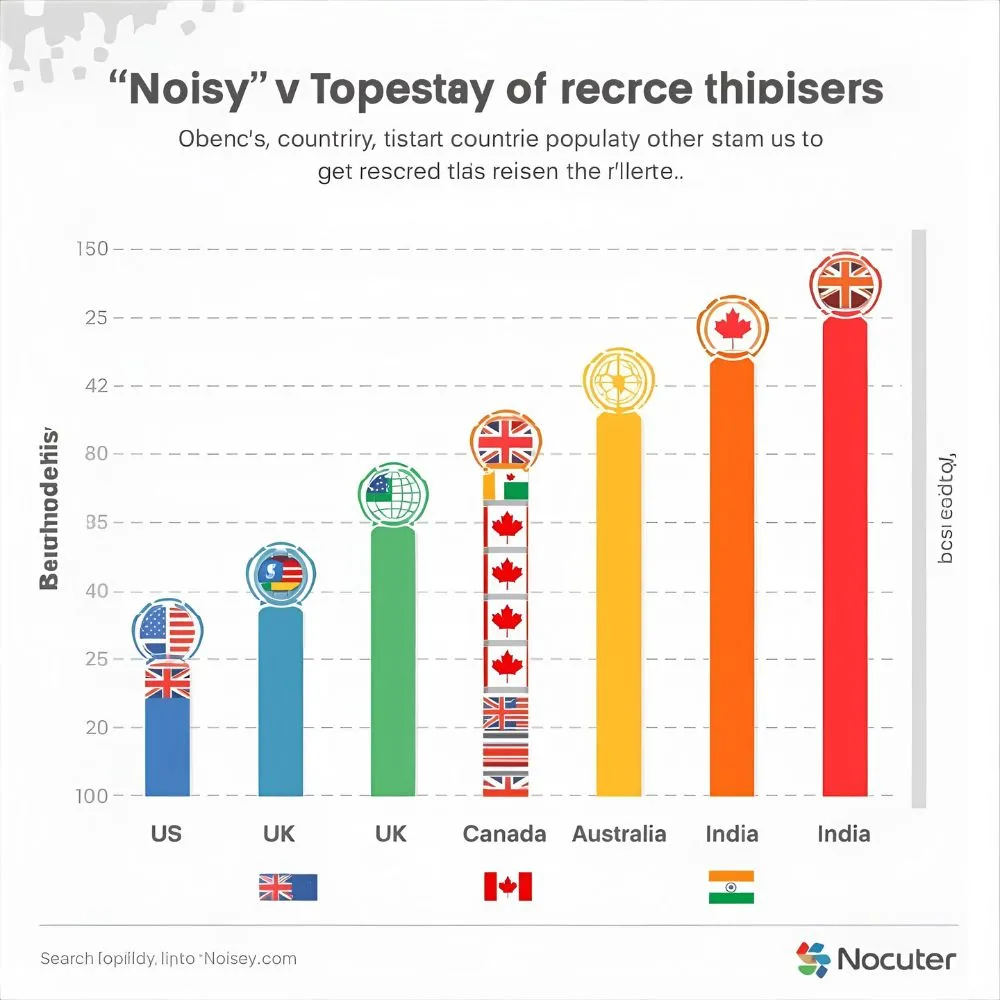
Google Trends shows that “noisy” dominates global searches, while “noisey” appears only as a misspelling.
In most English-speaking countries — the United States, the UK, Canada, Australia, and India — noisy is the only accepted and used form.
| Country | Search Popularity (Noisy) | Search Popularity (Noisey) |
| United States | 100% | 0% |
| United Kingdom | 100% | 0% |
| Canada | 98% | 2% |
| Australia | 99% | 1% |
| India | 97% | 3% |
Clearly, noisy wins globally — it’s the correct and recognized form everywhere.
Dwarfs or Dwarves: The Surprising Story Behind These Two Words
Comparison Table: “Noisey” vs “Noisy”
| Feature | Noisy | Noisey |
| Correctness | ✅ Correct | ❌ Incorrect |
| Recognized by Dictionaries | Yes | No |
| Used in Writing | Common | Rare / Wrong |
| Origin | From “noise” + “-y” | Incorrect derivative |
| Example | “The children were noisy.” | “The children were noisey.” |
Humour or Humor –A Simple Guide to British vs American English
FAQs “Noisey or Noisy”
1. Which is correct — noisey or noisy?
Only “noisy” is correct. Noisey is a common spelling mistake.
2. Is “noisey” used in any country?
No. Both American and British English use noisy only.
3. Why do people write “noisey”?
Because they assume words ending in -e keep it before adding -y. This rule doesn’t apply here.
4. What does “noisy” mean?
It means loud, full of noise, or making a lot of sound.
5. Can “noisy” describe people?
Yes! For example, “My neighbors are very noisy.”
6. Is “Noisey” ever a proper noun?
Yes — “Noisey” was once a music channel by Vice, but it’s not the adjective’s correct spelling.
7. How can I remember the right spelling?
Think of noise + y = noisy. Drop the “e” — simple and correct!
Honor vs Honour –A Quick Guide to British vs American English
Conclusion
In summary, the correct spelling is “noisy.” The form noisey is a frequent mistake caused by confusion with other English spelling patterns. Whether you’re writing emails, essays, or online posts, using the correct spelling shows professionalism and clarity.
The rule is easy: if a word ends in -se, drop the “e” before adding -y. That’s why we say noisy, not noisey. The same rule applies to breezy, busy, and lazy.
Both British and American English fully accept noisy, so you don’t have to worry about regional differences. Keep your writing clean, simple, and error-free — and your grammar will always sound just as sharp as your ideas.
Discover More Articles :
- Gluing or Glueing –The Simple Answer You Need
- Tyre or Tire: British vs American English Explained Clearly

Charlotte Everly is a creative writer at lingorae.com, known for her clever wit and engaging style.
A true master of puns, she crafts playful wordplay that entertains and delights readers.




